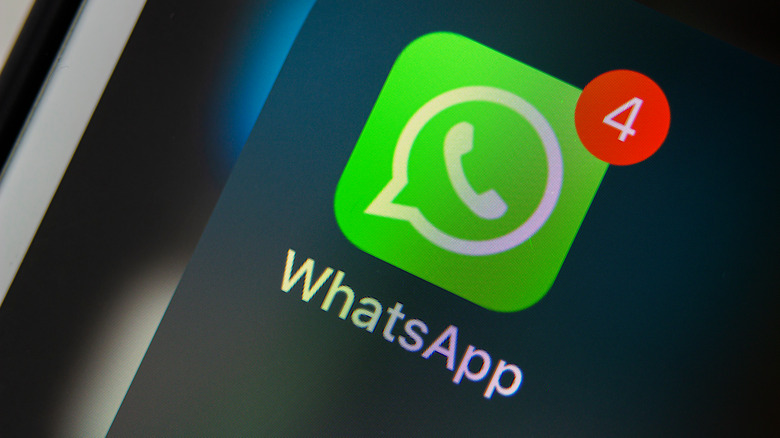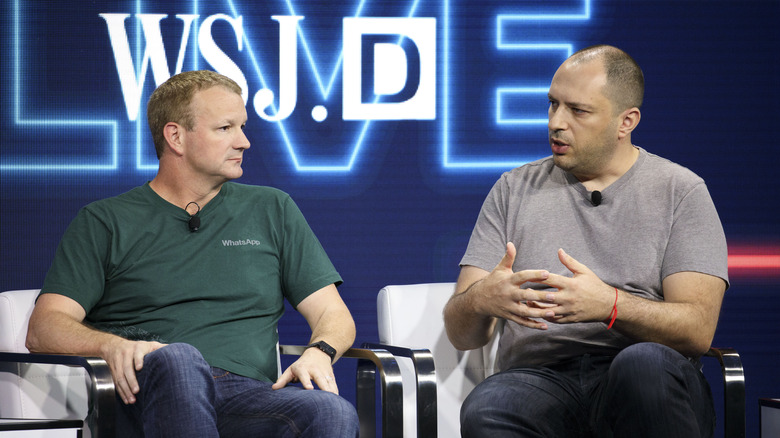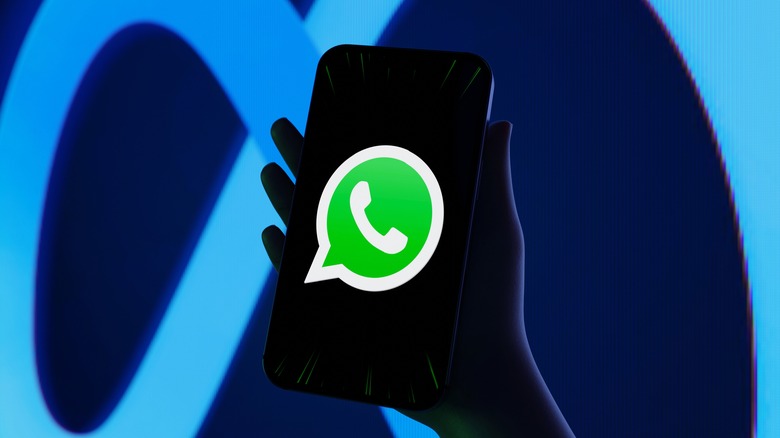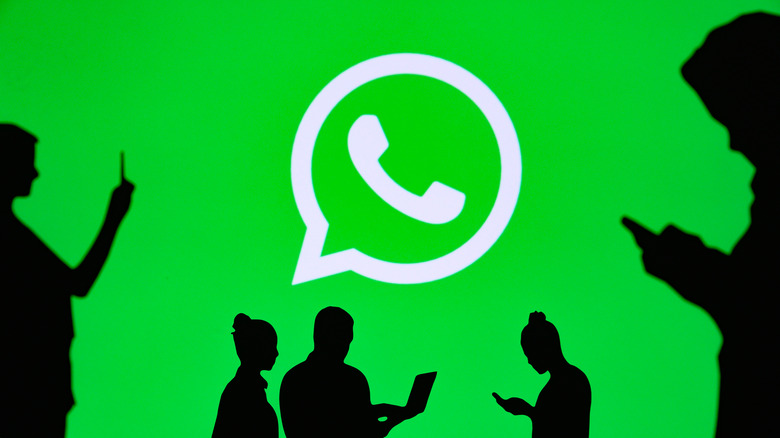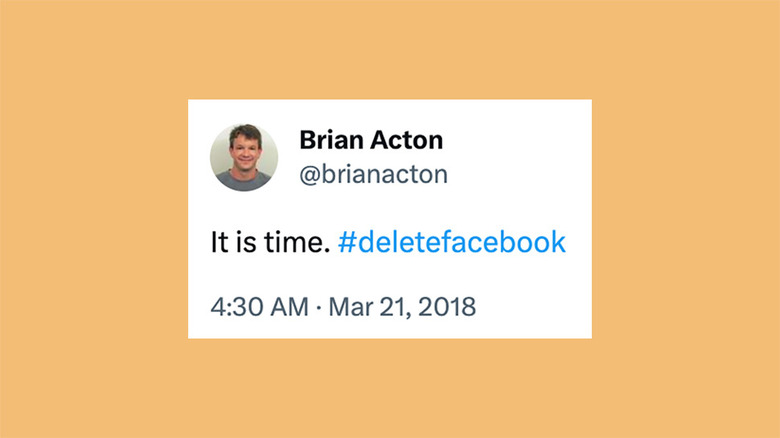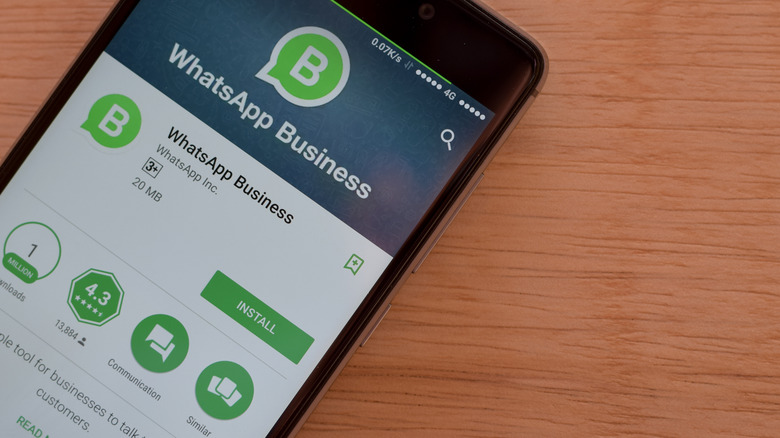Who Owns WhatsApp And Why Was It Worth $19 Billion?
WhatsApp is the world's largest messaging and internet calling platform. As per the official data last released in 2020, it had over two billion users across over 180 countries. Since then, the number is projected to have swelled to almost 2.75 billion users — roughly one-third of the world's population.
WhatsApp's popularity isn't tricky to decode. It has always been an inexpensive alternative to the archaic SMS. The app's launch coincided with the uptick of faster mobile internet during the formative years of the "smart" phone category. Although the founders constantly fiddled with the idea of making users pay $1 yearly, the majority of its almost-three billion users have used the app for free.
Besides instant messaging across different platforms, WhatsApp lets you place voice and video calls — with the recently added ability to present your screen during a group call. Additionally, you can share large files, your GPS location, react to messages with emoji and stickers, or even use it for sending money in certain countries. All these features make WhatsApp a very comprehensive messaging service.
Facebook, now Meta, acquired WhatsApp in 2014 for a whopping $19 billion. If you're curious about what inspired this sizable payout, here is what you need to know.
Who founded WhatsApp?
In February 2009, former Yahoo employee Jan Koum conceived the first draft of WhatsApp after being amazed by the prospects of the emerging iOS App Store. Named after the phrase "What's up?" early-stage WhatsApp didn't offer messaging as a service but allowed users to share short statuses. It was initially only launched on iOS and made available for BlackBerry phones in the following months. Support for Android and Symbian didn't arrive until mid-2010, but Koum kept improving WhatsApp for iOS.
In June 2009, a crucial Apple update allowed iOS apps to send push notifications, and WhatsApp was immediately updated to send a notification every time someone updated their status. This enabled early users to share frequent updates and treat the feature as a group chat.
Koum realized WhatsApp's potential as an instant messenger and added direct messaging in August 2009. It became immensely popular because the only other alternative at the time without a limit on the number of messages (remember when you only got 500 texts a month?) was BlackBerry Messenger (BBM), which, too, was limited to BlackBerry phones. Instant messaging catapulted WhatsApp to having 250,000 users.
In November 2009, Koum's close friend and former colleague from Yahoo, Brian Acton, became a co-founder by bringing seed funding worth $250,000 from five other ex-Yahoo employees. In December, WhatsApp added the ability to send photos on iOS, making it a richer version of MMS without much quality loss.
WhatsApp acquired for $19 billion
At this point, Koum and Acton were experimenting with a $1 pricing for the app on the iOS App Store. WhatsApp's monumental growth continued despite being a paid app, inspiring the founders to stick to a paid model for iOS.
By 2013, WhatsApp had crossed the 200 million monthly active users mark and doubled this number by the end of 2013. This relentless growth attracted internet giant Facebook (now Meta), which was already serving more than a billion users on the social media platform.
Meta first proposed to acquire WhatsApp in 2012, and the deal was finalized in February 2014 for a hefty sum of $16 billion, including $4 billion in cash and roughly $12 billion in Meta stock. This was more than 10 times WhatsApp's previous valuation of $1.5 billion from the previous year. Meta offered an additional $3.6 billion to WhatsApp's founders and employees in vested stock options, raising the total amount of the deal to $19.6 billion. With autonomy guaranteed and a special clause in their agreements preventing the monetization of WhatsApp, Koum and Acton joined Meta.
By the time of regulatory approval in October 2014, Meta's share price had swelled from $65 to $78 apiece, inflating the total deal price to $21.8 billion. This was an astronomical price for an app that barely generated any revenue.
What inspired Meta's massive purchase?
WhatsApp was one of the most significant purchases of its time — much larger than Facebook's acquisition of Oculus, Google's acquisition of Nest Labs, or Microsoft's acquisition of Nokia's devices business. It was undoubtedly the most expensive purchase Facebook (now Meta) has ever made and dwarfs the measly $1 billion it paid to acquire Instagram in 2012.
So what makes WhatsApp worthy of such a high valuation, even without a monetization system? That answer was its humongous growth. WhatsApp already had 450 million users and raked in a million new users daily when the acquisition was announced. The deal proved fruitful for Meta and Zuckerberg as the app reached one billion users by February 2016, exactly two years after the initial announcement.
In January 2016, WhatsApp also eliminated the sparsely applied $1 annual fee to attract more users, especially in developing countries. With over a billion users, Meta now started exploring ways to generate revenue, including its primary business model — advertising. WhatsApp was reportedly toying with the idea of showing targeted banner ads in the app's dedicated section for Statuses. This never came to fruition because it would require Meta to weaken's WhatsApp's privacy features, especially end-to-end encryption.
Why did WhatsApp founders leave?
In September 2017, Meta switched to another strategy by announcing WhatsApp Business. Identical to the regular version, it would allow enterprises to share promotional updates, offer direct customer support through verified accounts, build storefronts within the app, and set up automated responses.
While WhatsApp Business has been free, Meta began charging businesses for integrations into their internal systems through APIs. WhatsApp Business also allowed enterprises to target existing consumers through Facebook ads (WhatsApp was already sharing mobile numbers with Facebook). This miffed co-founder Brian Acton, a vehement opposer of ads, and resulted in his departure in September 2017.
Eight months later, Jan Koum also left Meta over differences in how users' sensitive data was handled in the infamous Cambridge Analytica fiasco. Meanwhile, Facebook's involvement prompted Acton to call for people to "#deletefacebook."
Meta's efforts to make a profit from WhatsApp became stronger after both co-founders left. It added ways for users to engage with businesses over WhatsApp after being redirected from Facebook and Instagram ads and experimented with Venmo-like payments in India and Brazil.
WhatsApp strengthens focus on monetization
In 2021, WhatsApp updated its privacy policy, allowing businesses to store (or share with third parties) previous conversations to improve the quality of customer satisfaction, show targeted ads on Facebook and Instagram, and endorse new products. It forced users to agree to the new policies by warning of the loss of chats and eventual deletion of their WhatsApp accounts. This led to many users flocking to privacy-centric platforms, including Telegram and Signal. Since the policy switch, WhatsApp has witnessed a surge in spam from businesses, even if you have never interacted with them on WhatsApp.
To retain users, WhatsApp has continually added new features and remained free to use. Recent additions to the list of features include using the same account on multiple devices, a WearOS app, high-quality media sharing, individual chat locking, editable messages, Communities, and more. These features are available to all users, unlike Telegram, which offers features such as faster downloads, real-time translation, voice message transcription, etc., exclusively to premium users.
Meta instead focuses on generating money from medium and large enterprises through WhatsApp Business, which Zuckerberg hailed as "the next major pillar" of its business in November 2022. WhatsApp Business' latest update in June 2023 added more paid tools for businesses. Meanwhile, Meta has repeatedly touted top-notch end-to-end encryption for the platform, ensuring users' conversations remain safe on WhatsApp.
